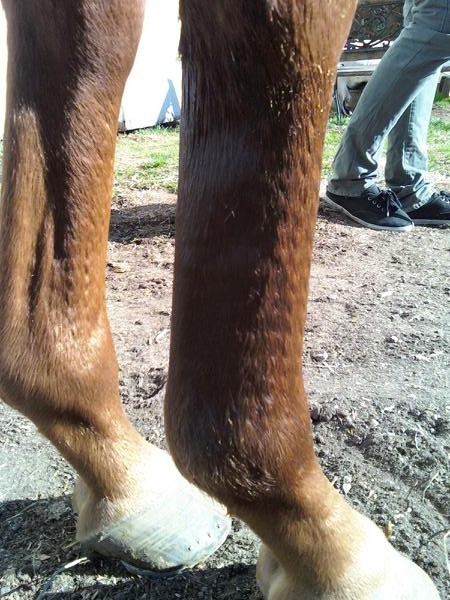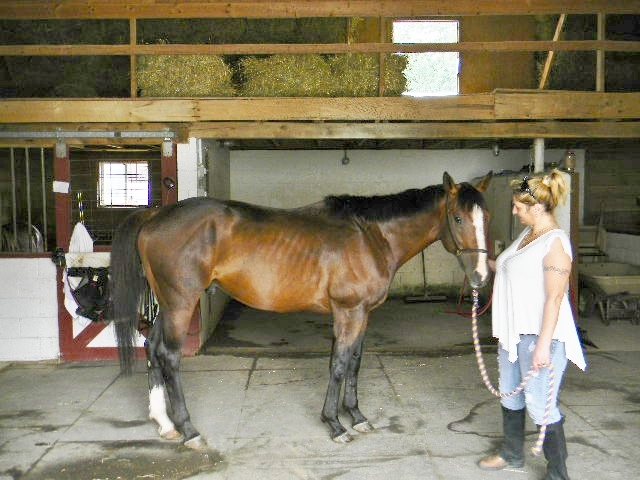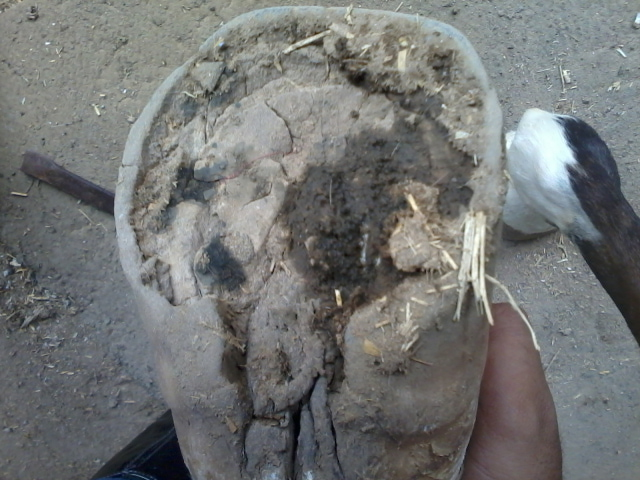QuestionWhen do i need a health certificate? or a SCID test done on my mare
AnswerHealth certificates are generally required when a horse travels from one state to another (Interstate travel). However, different states have different requirements, so if and when you transport a horse you should check the State's regulations. Some facilities may require health certificates also, even when traveling within a state, particularly if there has been an outbreak of illness.
As for an SCID test - I am not familiar with that - can you tell me what it stands for or if tehre is a 'common' name?
Generally, when I have trailered, I have to have a health cerificate (within 30 days), proof of Rabies vaccination, and also a negative Coggins (EIA) within the past 6 months.
I did a little research - and found the following about SCID -
SCID
There is now a definitive test for the Severe Combined Immunodeficiency "SCID" gene in Arabian and Arab cross bred horses. This test unequivocally determines if an animal is affected, a carrier or clear of the mutant gene. The major and most important implication is that now there is no guesswork in avoiding SCID offspring.
Since SCID is an autosomal recessive disease, matings between two clear animals as well as matings between a clear and a carrier animal will NEVER produce an affected animal. By definition, carriers of genes for autosomal recessive disorders are completely free of clinical signs of the disease. That is, carriers do not have any negative consequences to their health or performance. If two carriers are mated, there is a 25% chance that the foal will be clear, 50% chance that it will be a carrier and 25% chance that it will be affected, a chance not worth taking. Prior to the advent of molecular genetic testing for autosomal recessive disorders, the only way an animal was identified as carrier was when he or she produced an affected offspring.
The traditional recommendation in veterinary medicine would be gelding of these animals to prevent other affected offspring being produced. However, this is no longer necessary and not in the best interest of the breed. Carrier animals that have all the desirable traits for which the breed is known can now be mated to other tested animals who are clear and then never produce an affected foal. Similarly, their offspring can be tested and appropriate matings set up in the next generations without the breed ever suffering the loss of another foal to SCID. In this manner, the breed still continues to benefit from all of the outstanding traits that a carrier animal may possess. Thus, the economic value of the animal should not be affected by being clear or carrier.
Testing is easy and highly accurate, and can be performed at any point in time in the life of the animal with a simple oral swab or a blood sample. The cost of testing is a small fraction of the value invested in the animal. There is no reason to gamble on fate. All breeding animals need to be tested to avoid major losses and heartache to the humans and to prevent morbidity in the animals.

 Horse Health
QuestionQUESTION: My recently retired race horse came i
Horse Health
QuestionQUESTION: My recently retired race horse came i
 sprint or a route
Question
sprint or a route
hello. looking at con
sprint or a route
Question
sprint or a route
hello. looking at con
 Gelding a 4 year-old ex-racehorse
Questionsplash
QUESTION: In April of this year I
Gelding a 4 year-old ex-racehorse
Questionsplash
QUESTION: In April of this year I
 Kaves Ankle Injury
QuestionQUESTION: Hi Anne,
Yes I did hear back from Dr
Kaves Ankle Injury
QuestionQUESTION: Hi Anne,
Yes I did hear back from Dr
 thrush on hoof
Question
thrush
hello. hope you can answer this
thrush on hoof
Question
thrush
hello. hope you can answer this